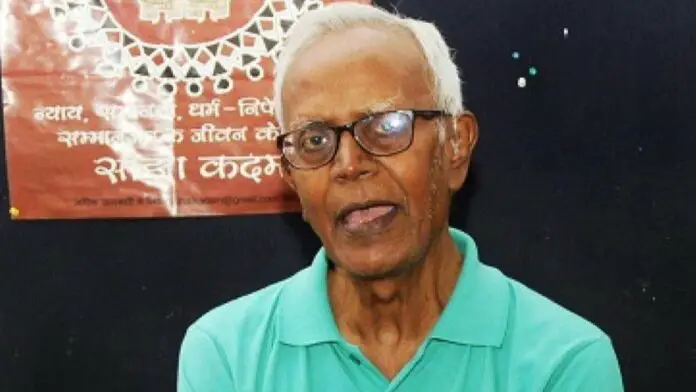
One of the Accused in Bhima Koregaon case 83 years old father stan Swamy who is denied bail by special NIA court has now moved Hon’ble Bombay high court challenging section 43-D(5) of The Unlawful Activities (Prevention) Act, 1967 (hereinafter referred to as “UAPA, 1967”) for being violative of Article 14,15 and 21 of the Indian constitution.
The plea is filed through learned counsel Mihir Joshi to seek bail on furnishing bail bond and surety. Further, it is urged that stan Swamy be kept under house arrest as an alternate relief.
In the plea learned counsel Mihir Joshi urged the Hon’ble Court to quash and set aside the terminology “all its formations and front organizations” in the first schedule of UAPA, 1967 for being violative of Constitutional provisions.
Needful to mention Section 43-D(5) of UAPA, 1967 reads as follows:
“Notwithstanding anything contained in the Code, no person accused of an offense punishable under Chapters IV and VI of this Act shall, if in custody, be released on bail for his bond unless the Public Prosecutor has been given an opportunity of being heard on the application for such release: Provided that such accused person shall not be released on bail or his own bond if the Court, on a perusal of the case diary or the report made under section 173 of the Code is of the opinion that there are reasonable grounds for believing that the accusation against such person is prima facie true.”
The plea further argued that presumption of innocence is the cornerstone of the criminal justice system and Section 43D(5) of the UAPA, 1967 prohibiting bail if reasonable grounds exist showing the accusation is prima facie denies the basic human right of bail.
Moreover, it is argued that the grant of bail is the norm and its denial should be an exception because an accused who is presumed to be innocent Until proven guilty should not be denied his/her freedom.
It is pertinent to note here that While interpreting section 45-D (5) of UAPA, 1967, the Hon’ble Supreme Court in Zahoor Ali Shah Watali’s case held that “the court must not only presume that prosecution documents are true, it cannot even examine whether they are admissible in evidence; it must presume that they are.”








